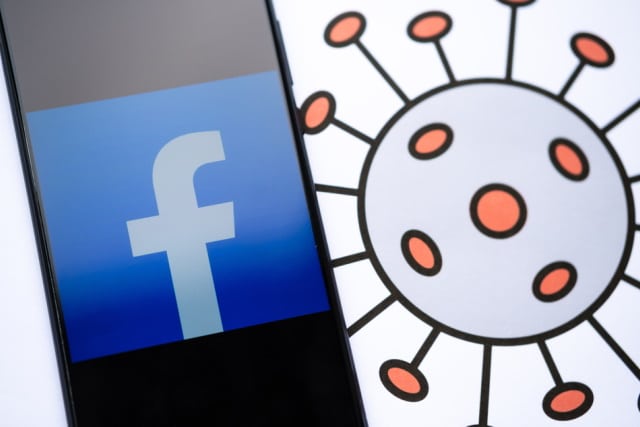
Facebook will let you know if you've been reading nonsense about coronavirus
As the world struggles to deal with the coronavirus pandemic, there is another battle taking place online -- the battle against misinformation. Well-aware that its platform is being used to spread false and misleading information about the disease, Facebook is taking action to try to stem the flow.
The social media giant, like other technology companies, has already taken steps to ensure people have access to reliable information, but now it is going further. Facebook will now retroactively alert people who have interacted with "harmful misinformation about COVID-19".

New 'quiet mode' option lets you silence Facebook
Social networks are a blessing and a curse, simultaneously making it easier to keep in touch with people, while bombarding us with endless notifications about what's going on in the world. Now, at last, Facebook has come up with something of a solution.
The company has introduced a new Quiet Mode option that makes it possible to silence notifications so you can get on with life without being constantly pestered. But is it enough?

Facebook releases a messaging app that's for couples only
With no fanfare whatsoever, Facebook has launched a new messaging app -- one with a difference. Coming from its New Product Experimentation team, Tuned is an iPhone-only messaging app designed with couples in mind.
Tuned finds itself vying for attention in an already-saturated messaging market, so just what's the point? Is there any reason for anyone to consider using Tuned?

Zoom teams up with security experts, including Facebook's former Chief Security Officer, to address privacy and safety
The privacy and security scandals that have blighted Zoom have already caused some users to look for alternatives, but the company seems serious about trying to address the issues that have sparked concern.
Having already issued an apology to users, Zoom CEO Eric S Yuan has now revealed that his company is collaborating with numerous big-name CISOs (chief information security officers) to ensure the implementation of security and privacy best practices. He also says that Facebook's former Chief Security Officer, Alex Stamos, is joining the company as a security advisor.
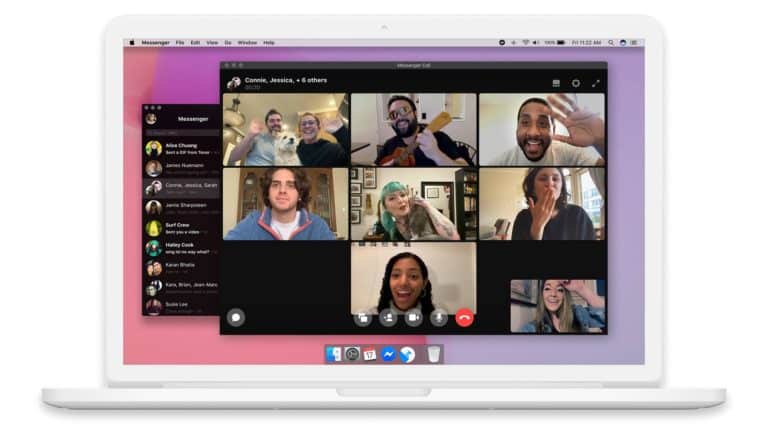
Hands-on with Facebook's relaunched Messenger for Windows and Mac
As the world goes into lockdown over the coronavirus pandemic, staying in touch with loved ones both near and far has never been more important. The explosion in popularity for video chatting makes it entirely appropriate that Facebook should relaunch Messenger on the desktop platform with support for video group calling.
In addition, brand new versions of Facebook Messenger for Windows and Facebook Messenger for Mac finally bring all Messenger features to the platform along with some major new video-chat features.
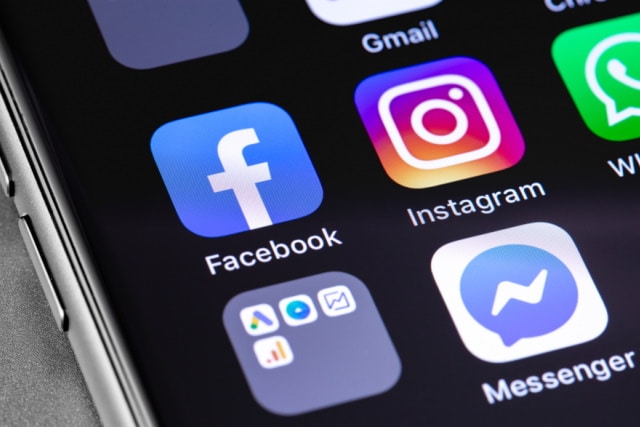
Now it's easier to see just what data Facebook and Instagram are collecting about you
It's no secret that Facebook gathers staggering amounts of information about its users across its various products. This is something that many people just accept, but there is a slight discomfort in not knowing quite what is being collected.
To add a little balm to this aching fear, Facebook has announced updates to its Download Your Information tool on Facebook and Download Your Data tool on Instagram. The updates mean that while you can do little to stop Facebook from tracking you, you can at least download and see what data it is collecting about you.
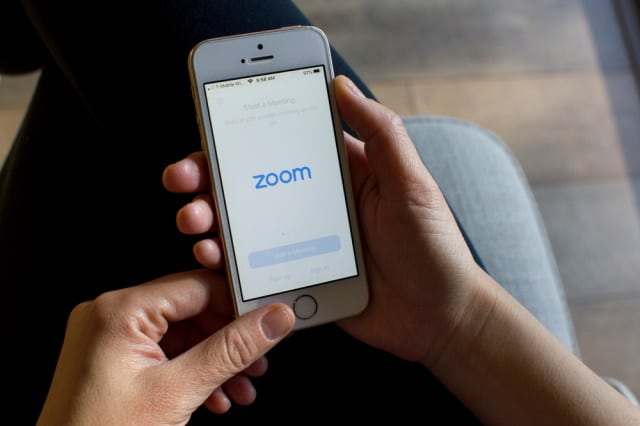
Zoom apologizes for Facebook privacy fiasco and updates app to stop data sharing
After an investigation by Motherboard's Vice, video-conferencing app Zoom was found to be sharing user data with Facebook. Data was being sent from iPhones to Facebook, regardless of whether users had Facebook accounts or not, and the fact that data was being shared was not made apparent in privacy policies.
Zoom's popularity has skyrocketed recently, with more and more people looking for remote working solutions during coronavirus lockdowns. Now the company has apologized for the secretive data sharing, saying that it takes privacy extremely seriously. There's also a new version of the app available that doesn't use the Facebook SDK.
Why is Zoom secretly sharing data with Facebook?
With so many people now working from home, video conferencing service Zoom has become a household name virtually overnight. But while millions of users appreciate the ability to connect with the office, colleagues, friends and family for free, a worrying privacy issue has been found.
The Zoom iOS app has been spotted sharing data with Facebook... even for users that don't have a Facebook account. So what's going on?

Facebook is doing more to promote reliable information about coronavirus
The coronavirus pandemic has people around the world searching for information about what they should and shouldn't be doing, as well as news about the spread. But there is a lot of misinformation out there, and social media platforms are breeding grounds for such harmful content to spread.
Facebook has been taking steps to counter misinformation about COVID-19, not only on the main Facebook platform, but also on Instagram, WhatsApp and Facebook Messenger. Now the company is expanding its efforts to connect people with trustworthy information about coronavirus.

Microsoft, Facebook, Slack and others support #BuildforCOVID19 Global Online Hackathon
There are numerous technology companies that have agreed to offer their services for free as the world tries to tackle the coronavirus crisis, and others who have taken steps to reduce their strain on the internet. Tomorrow, #BuildforCOVID19 Global Online Hackathon kicks off, with many of the big names from the world of tech coming together to tackle some of the problems COVID-19 presents.
There are also numerous partners from the health community, including the World Health Organization, and the aim is to come up with software solutions that can be used to improve health and hygiene, help with social isolation, assist in education, and help businesses stay afloat.

The surprising state of social media background checks in 2020
Your friends and followers aren't the only ones looking at what you Like. In 2017, CareerBuilder revealed that 70 percent of employers review social media during the hiring process. Today that number may be even higher: one survey by First Advantage found that nearly two-thirds of employers choose to screen all employees and applicants for "red flag" behavior on websites such as Facebook and Twitter.
The primary peril of vetting candidates by examining their online profiles remains the same as when this trend first rose to prominence: employers performing "social media background checks" may inadvertently uncover sensitive or protected information which compromises their ability to make an unbiased hiring decision. Not hiring a candidate based on such information, from sexual orientation to religion to race, could expose a business to accusations of unfair or discriminatory hiring practices.
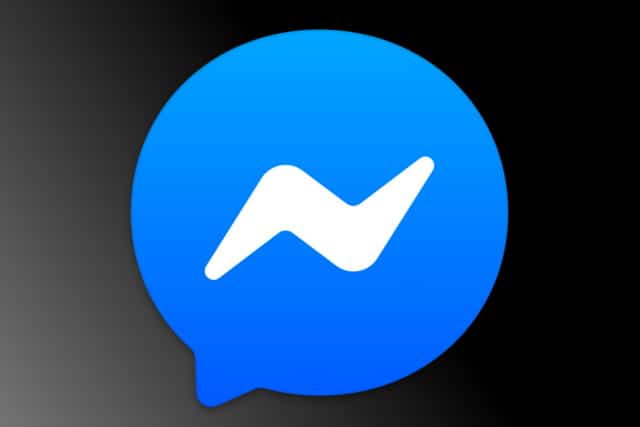
Facebook Messenger lands in the Mac App Store in some countries
There has been talk of a macOS version of Facebook Messenger for the best part of a year, and now it seems that the app is finally rolling out.
Facebook had said that it wanted Messenger for macOS to launch by the end of 2019, but it is only now that it has started to appear in the Mac App Store. For now, sadly, it is limited to a handful of markets, suggesting that this is a staged rollout targeting key countries first.
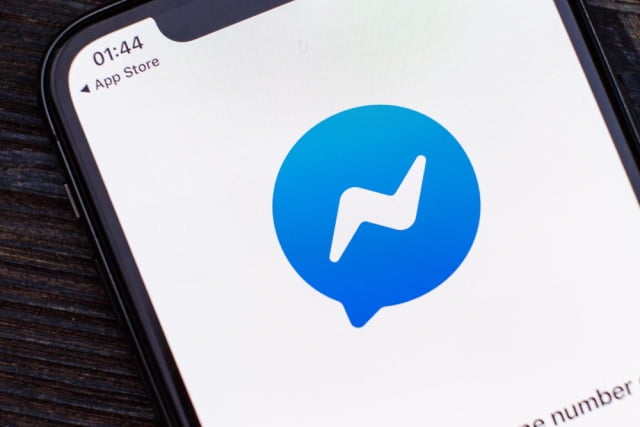
New Facebook Messenger app is simpler, and twice as fast
There are lots of apps you can use to communicate with friends, family and colleagues. These include WhatsApp, Signal, Telegram, Skype, and Facebook Messenger. Messenger was first spun off into its own app in 2011, and since then the social network has added more and more features to it, to the point where it has become bloated, and harder to use.
Realizing this, Facebook has gone back to basics, and redesigned Messenger to make it faster, smaller, and simpler.
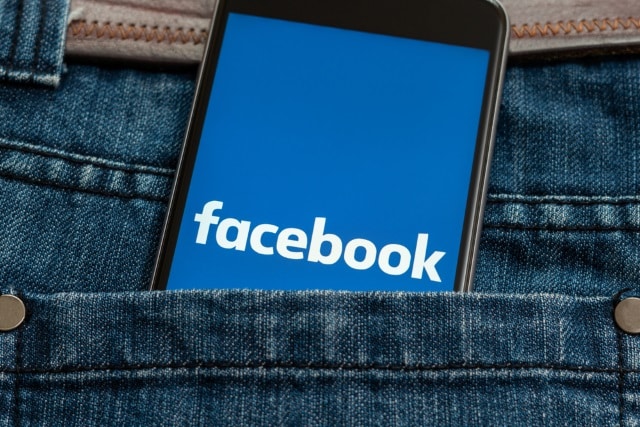
Facebook will pay you for your voice recordings
If you feel you should be able to benefit financially from sharing information with Facebook, there's some good news: the company is willing to pay you for your voice recordings.
The scheme is part of the social network's Pronunciations program, and it sees Facebook trying to improve its speech recognition capabilities. But if you're hoping to get rich, you might be a little disappointed.

Selectively revealing yourself to the world -- Privacy in the 21st century
Fifteen years ago, if you wanted to join Facebook (then The FaceBook), you needed a valid college email address and the site did not offer much more than study group meetups or a place to chat and share pictures with high school friends. Today, Facebook is a juggernaut with roughly 2.5 billion monthly active users -- and as one of the world’s largest ad platforms, the amount of data it has on its users is staggering. But in 2018, the Cambridge Analytica breach profoundly shook users’ confidence in the social network -- and the entire tech industry as well. Since the scandal, there have been Congressional hearings, lawsuits, antitrust concerns and even the complete demise of Cambridge Analytica. But the questions did not end there -- consumers began to question how all big tech used their data. Why does Google track people’s location even if they have turned tracking off? Is Alexa recording my private conversations?
Thanks to the fallout from the Cambridge Analytica scandal, and the endless stream of data sharing scandals since, consumers are more aware of their online privacy and are beginning to question how companies are monetizing their data. Let’s look at how the rise of social media created this data economy, the tech industries attempt to regulate itself and how the U.S. government is woefully unprepared to address modern privacy challenges. How do we progress in a world where every detail of our days are tracked?
